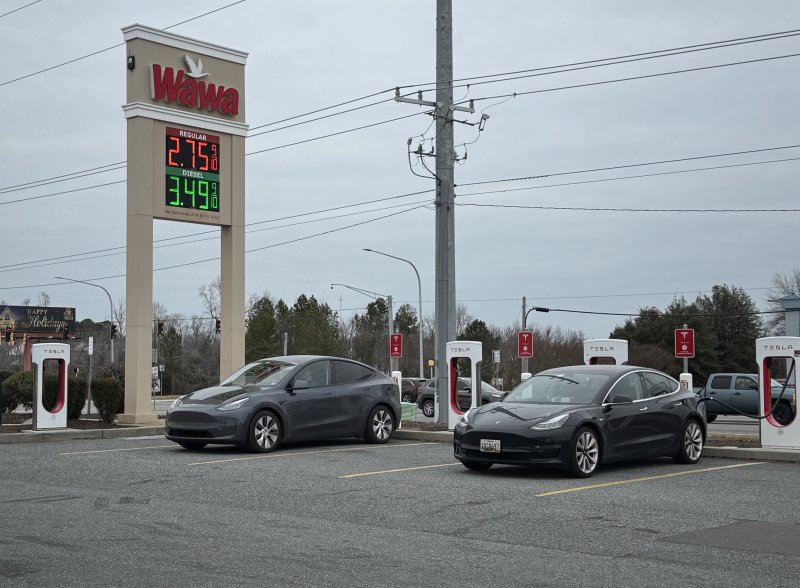General Assembly approves bill to increase DMV fees
Chalk it up to an unintended consequence of more electric or gas-efficient vehicles driving along state roadways, as a bill to increase license and other vehicle fees for Delaware residents has won approval by both houses in the General Assembly.
House Bill 164 would make up for the declining motor fuel tax revenue impacts on the Department of Transportation, as well as the increased costs associated with heavier electric vehicles. It passed the Senate June 18 16-4 with one absent after being approved in the House June 12 by a 27-13 vote, largely along party lines. Rep. Stell Parker Selby, D-Milton, was absent.
The bill now needs Gov. Matt Meyer’s signature in order to go into effect Oct. 1.
The bill was based on a University of Delaware study that projected a drop of motor fuel revenue into the state’s Transportation Trust Fund, which helps fund road and bridge improvements. Heavier electric vehicles, compared to traditional internal combustion driven vehicles, according to the bill, are causing more wear and tear on area roadways.
House Sponsor Rep. Eric Morrison, D-Glasgow, said Division of Motor Vehicles document fees would increase for anyone buying a new or used vehicle or transferring registration from another state, but Delaware’s fees are lower than neighboring states.
“The funds raised by enacting this legislation are absolutely critical to DelDOT’s mission and purpose, and to serve our constituents at the level they deserve,” he said.
The fund is now $334.5 million, but is estimated to drop to $210 million in fiscal year 2026, he said. Meanwhile, he said, costs to improve bridges and roadways are increasing.
DelDOT Secretary Shanté Hastings said the drop in fuel tax revenue over the past fiscal year was about $16 million. The fuel tax in FY 24 was about $137 million, returning to pre-COVID levels after a drop in FY 21. However, she said, by all indications, residents are driving more alternative fuel vehicles, and the trend is expected to continue.
She said 0.1% of the registered fleet within Delaware is becoming EV or hybrid every month.
Rep. Valerie Jones Giltner, R-Georgetown, said drops projected by the UD report were based on the number of zero-emission vehicles that would have been required by the state’s emission mandate, which may not go into effect, and she disagrees with fee increases placed on gas-fueled vehicles.
“I don’t think that’s fair,” Jones Giltner said. “In committee, I asked about putting a charge, a fee, a tax onto the electric vehicle charging stations, and you told me there was no appetite for that.”
Hastings said a new state code would be needed to add an extra fee to electric charging stations. She said Delaware is one of 11 states that doesn’t charge an extra electric charging fee.
Jones Giltner said she regularly sees out-of-state vehicles charging at Delaware stations, and taxing them should be a priority.
“Folks, that’s the revenue we’re missing,” she said. “We do not need to put this tax on the backs of the people who are trying to buy a vehicle just to go back and forth to work … that’s where we need to place the charge.”
Morrison said the drop in fuel tax is because the fuel-powered vehicles are becoming more efficient. Decreasing vehicle travel has also caused a drop in fuel tax revenue, Hastings said.
Hastings said the alternative fuel registration fee would vary depending on the type of vehicle. For a fully electric vehicle, she said it would be $110 per year.
Other increases include:
• Renewal of a driver’s license, non-commercial class A or B license from $40 to $50; renewal of a commercial driver’s license from $48 to $55; and the fee for adding a commercial driver’s license endorsement from $5 to $10
• Fee for a sex offender registration license replacement from $5 to $10
• Fee for taxicab endorsement and renewal from $3.45 to $10
• $20 for a duplicate identification card that is lost or destroyed, and $10 for a replacement identification card due to name change.
Melissa Steele is a staff writer covering the state Legislature, government and police. Her newspaper career spans more than 30 years and includes working for the Delaware State News, Burlington County Times, The News Journal, Dover Post and Milford Beacon before coming to the Cape Gazette in 2012. Her work has received numerous awards, most notably a Pulitzer Prize-adjudicated investigative piece, and a runner-up for the MDDC James S. Keat Freedom of Information Award.























































